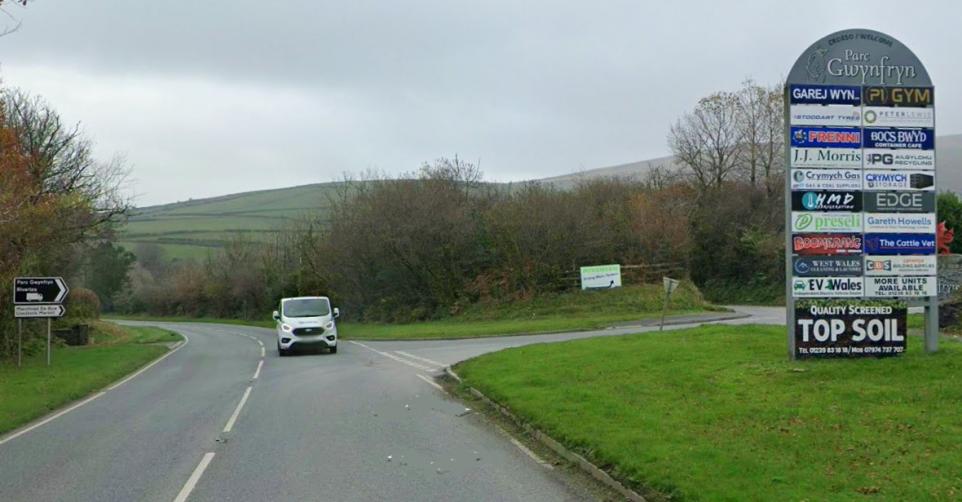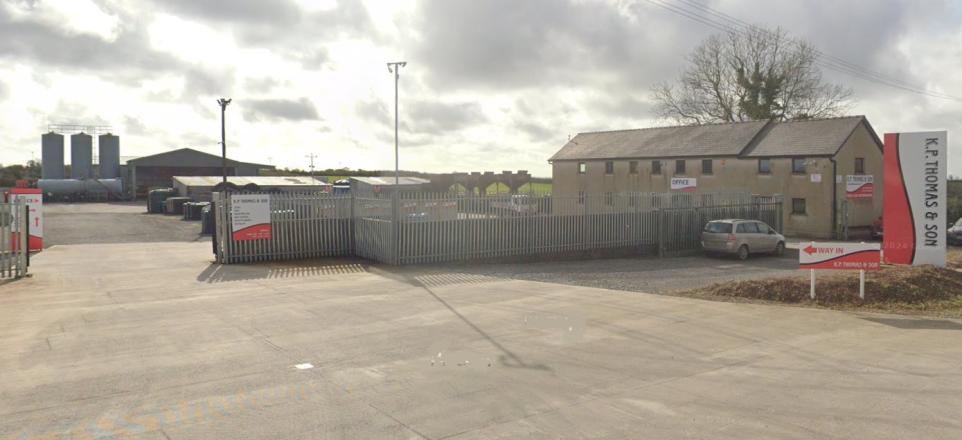Business
Gaining wealth from liquid gold: Proficient strategies for oil trading

Oil trading, often referred to as the “liquid gold” market, is a dynamic and complex arena where fortunes can be made or lost. In this article, we will delve into the world of oil trading, offering proficient strategies and insights to navigate this lucrative sector successfully. To stay ahead in this evolving landscape, it’s crucial to utilize modern resources. One such resource is oilprofit.app, a cutting-edge online trading tailor-made for oil traders, providing them with essential tools and real-time data to enhance their decision-making capabilities and seize opportunities in this high-stakes market.
The Basics of Oil Trading
Understanding the Oil Market
The oil market is divided into two main categories: crude oil and refined products. Crude oil is the raw material extracted from the ground, while refined products include gasoline, diesel, and jet fuel. Key players in the oil market include producers, refiners, traders, and consumers.
Factors Influencing Oil Prices
Oil prices are influenced by a myriad of factors, including supply and demand dynamics, geopolitical events, and economic indicators. Understanding these factors is crucial for effective oil trading.
Types of Oil Trading
Physical Oil Trading
Physical oil trading involves the actual purchase and delivery of physical barrels of oil. While it provides direct exposure to the commodity, it comes with logistical challenges, such as storage and transportation.
Oil Futures and Options
Financial oil trading via futures and options contracts offers traders a way to profit from oil price movements without handling physical barrels. This approach provides liquidity and flexibility but requires a solid understanding of derivatives markets.
Developing a Trading Strategy
Fundamental Analysis
Fundamental analysis involves studying supply and demand fundamentals and keeping an eye on geopolitical events that can disrupt oil supplies. Monitoring factors like OPEC decisions, inventory levels, and political stability in key oil-producing regions is essential.
Technical Analysis
Technical analysis relies on charts and historical price data to identify trends and trading opportunities. Traders use technical indicators like moving averages, RSI, and MACD to make informed decisions.
Risk Management
Effective risk management is crucial in oil trading. Setting stop-loss and take-profit levels, diversifying your portfolio, and managing leverage can help protect your capital and minimize losses.
Trading Platforms and Tools
Popular Trading Platforms for Oil
Traders have a range of platforms to choose from, with MetaTrader 4/5 and TradingView being popular options. These platforms offer advanced charting, real-time data feeds, and order execution capabilities.
Trading Tools and Resources
Access to real-time data feeds, economic calendars, and news sources is vital for staying informed about market developments. These tools help traders make timely and well-informed decisions.
Regulatory Considerations and Taxation
Regulations in Oil Trading
Various regulatory bodies oversee oil trading, ensuring fair and transparent markets. Traders must comply with reporting requirements and understand the role of organizations like the Commodity Futures Trading Commission (CFTC) in the United States.
Taxation of Oil Trading Profits
Tax considerations in oil trading profits can differ significantly depending on your location. It’s essential for traders to have a clear understanding of their specific tax obligations and explore professional guidance to fine-tune their tax optimization strategies.
Case Studies and Success Stories
Profiles of Successful Oil Traders
Analyzing the journeys of accomplished oil traders offers valuable lessons. Within the industry, prominent figures and organizations such as Andrew Hall, Pierre Andurand, and Vitol Group stand out as examples of success. Their stories and strategies serve as instructive examples for aspiring traders, shedding light on the paths to prosperity in the world of oil trading.
Lessons Learned and Pitfalls to Avoid
Accomplished oil traders frequently stress the significance of maintaining discipline, perpetually expanding their knowledge base, and implementing effective risk management strategies. Additionally, they advise against excessive leverage and making impulsive decisions driven by emotions. These key principles are fundamental to achieving success and sustainability in the intricate world of oil trading.
Conclusion
In conclusion, oil trading offers significant opportunities for those who approach it with knowledge and a well-defined strategy. Whether you’re interested in physical trading or prefer the flexibility of financial derivatives, understanding the basics, developing a sound strategy, and staying informed about market developments are key to success in this exciting and profitable field. As the world’s energy needs continue to evolve, oil trading remains a dynamic and vital part of the global economy.
Business
Crymych golf simulator, play space and wellness centre call

A CALL for approval for the use of Crymych industrial units as a golf simulator, child’s play space and a wellness centre offering a sauna, ice baths, and oxygen therapy has been submitted to county planners.
In an application to Pembrokeshire County Council, Mr and Mrs Evans, through agent Preseli Planning Ltd, seek a partly retrospective permission for the erection of commercial building containing three individual business units, at a former vacant storage yard at Parc Gwynfryn, Crymych.
A supporting statement says: “The building provides three sperate business spaces, two of the units are occupied, one as a golf simulator (7B 2) a second is occupied by a child’s role play and play space (7B 4) and the central unit (7B 3) is currently unoccupied, proposed to be let as a wellness centre.”
The site owners and applicants, Mr and Mrs Evans, are also the operators of the golf simulator enterprise and the original developers of the industrial estate, the statement says.
“The aim of the application is to regularise the existing building and existing and proposed uses. The building was substantially complete May 2025 and first occupied June 2025. Unit 7B2 is occupied by a golf simulator whereby users book slots online and self-serve.
“Unit 7B3 is currently unoccupied but would be occupied by wellness centre once planning permission is granted, consisting of sauna, ice baths, cryotherapy room, oxygen therapy etc. Unit 7B4 is occupied by a new enterprise which offers indoor roleplay space for children, Byd Bach.”
It adds: “In terms of the golf simulator, this is owner managed and the sites proximity to their main office within the site makes managing and attending the unit convenient and enables multiple businesses to be managed by the same members of staff.
“In terms of Byd Bach, this is operated by a local couple who also manage other premises in Crymych, amongst other employment. The site’s proximity to Crymych is therefore important and these arrangements are only successful given that the site is well-related to Crymych.
“The offering would not disrupt existing comparable provision, the closest facility of this kind being in St Clears, well beyond the catchment of this facility.
“The third unit is not yet occupied but would be operated by a local spinal injury sufferer, and athlete, who would benefit from the facilities themselves and offer therapy for others.”
Citing a recently-approved change on use of a building on the industrial site itself to a Hair and Beauty Salon, it said it was considered the development would not have a significant detrimental effect on the overall supply of business units or land in Pembrokeshire or Crymych.
The application will be considered by county planners at a later date.
Business
Little Haven garden shed holiday let appeal dismissed

AN APPEAL against a national park refusal of a scheme to convert a garden shed to a holiday let at a Pembrokeshire seaside village with the highest rates of second homes and holiday lets in the county has been dismissed.
Last April, in an application before Pembrokeshire Coast National Park, Shabnam Banihashem of 19a Wesley Road, Little Haven sought permission to convert a rear garden shed, already replace with a summerhouse, to holiday let accommodation.
Local community council The Havens had objected to the scheme, saying it has concerns over parking and highway access arrangements, and concerns about impact on Highway traffic safety-related matters.
An officer report recommending refusal said: “The Authority has concerns in connection with the proposal due to the impact upon the residential amenity of the host dwelling, and its immediate neighbours, the impact upon the character of the Little Haven Conservation Area due to the potential for additional traffic, and due to the proposed summerhouse being unsuitable in terms of size for the use of holiday letting.”
The application was refused on grounds including “introducing a significantly greater level of noise and disturbance than the current situation, to the detriment of the residential amenity of neighbouring properties,” and impact on the conservation area.
Since that refusal, the applicant appealed the decision with Planning and Environment Decisions Wales (PEDW); a site visit by the inspector taking place on January 28 of this year.
The main areas covered in the appeal were the effect of the proposal on the living conditions of neighbouring occupiers and future occupiers of the proposal, with regard to noise and privacy, and the character of the Little Haven Conservation Area, the inspector’s report said.
In dismissing the appeal, she said: “I have found the proposal would be acceptable with regard to its effect on the Conservation Area.
“However, this is outweighed by the harm that would be caused to the living conditions of the occupiers of the host dwelling, as well as occupiers of the proposal, with regard to privacy.”
A previous national park report, based on the second homes council tax premium payable to Pembrokeshire County Council, has said nearly two-thirds of properties in Little Haven are either second homes or holiday lets.
At the time of the 2023 report, the highest rates of seconds homes or holiday lets in the national park were: Nolton Haven 60 per cent, and Little Haven 62.96 per cent.
Business
Templeton Pembrokeshire fuel business home for security call

A CALL for a home to provide security for a well-established Pembrokeshire fuel distribution business and a proposed museum, which has hopes of developing further business units, has been submitted to county planners.
In an application to Pembrokeshire County Council, Dan Thomas, of KP Thomas & Son, through agent Cynllunio RW Planning Ltd, seeks permission for the erection of dwelling for management of on-site enterprises and associated works at The Fuel Depot, Templeton.
A supporting statement says family-run K P Thomas and Son, situated on a site close to a former airfield and former nuclear bunker, has been operating for 39 years and has “grown into a major local employer, currently providing work for 32 staff,” supplying “over 45,000 customers annually and distributes 30 million litres of fuel, 8,000 tonnes of LPG gas and 500 tonnes of coal every year,” and was “formally designated as an essential key service provider during the Covid-19 pandemic”.
A statement from Dan Thomas said he had moved some 15 minutes away to Narberth when he became a homeowner some five years ago, but “it quickly became clear that this arrangement was not workable due to the urgent and unpredictable nature of our operations”.
He said any detailed several incidents on-site which required an immediate on-site response, “the travel time from Narberth frequently caused delays, operational disruptions, and increased environmental risks”.
He said even living in nearby Templeton could cause difficulties for any emergency call-outs, which often occur in the early hours; the 24-7 business handling fuel distribution and transport logistics throughout Pembrokeshire and beyond, with his own working hours often running from 5am to as late as 8pm.
“Consequently, I had no choice but to relocate to the family home adjacent to the depot to ensure the continued safe and efficient operation of the business. This remains a temporary measure, and a permanent on-site dwelling is therefore essential to ensure long-term operational efficiency, safety, and compliance.”
He added: “As part of our fuel distribution operations, we regularly receive bulk fuel deliveries overnight. In the event of a spill, leak, or fault, an immediate response is vital to prevent environmental contamination and ensure public safety. Currently, if such an incident were to occur, I would need to travel from my home to the site before taking any action.”
As well as the existing facilities, it is hoped to construct several leasable commercial units on the site, with prospective tenants wanting permanent on-site security and immediate site supervision, Mr Thomas said.
His statement also says his grandfather “had begun developing a museum as a business but unfortunately passed away before its completion,” adding: “The value of the museum content alone, excluding the building, which includes a kitchen and café facility, was appraised at just over £12.5 million.”
He finished: “The proposed on-site dwelling is not a matter of convenience but one of operational necessity, safety, and environmental protection.”
The application will be considered by county planners at a later date.
-

 News7 days ago
News7 days agoWelsh Government criticised after Russian-linked drone image used in defence announcement
-

 Health7 days ago
Health7 days agoPetition calling for Withybush intervention nears 5,000 signatures
-

 News6 days ago
News6 days agoHoax 999 call sparks massive lifeboat and helicopter rescue — man arrested
-

 Community7 days ago
Community7 days agoPub reopens with VIP club launch and free drink offer
-

 Health6 days ago
Health6 days agoPetition against hospital service changes surges past 6,000 signatures
-

 Charity6 days ago
Charity6 days agoBig Bash brings community together to support grieving children
-

 Crime6 days ago
Crime6 days agoSt Dogmaels man jailed over hundreds of indecent images
-

 Crime6 days ago
Crime6 days agoWest Wales man jailed for murder of five-month-old baby



























